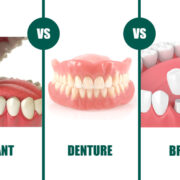Dental implants are devices that are used to replace missing teeth. They create a foundation for artificial teeth by fusing directly into the jawbone, where natural roots would be found if the tooth was still there. This article will explain how much bone you need for a dental implant and what factors can affect how much bone is available. We’ll also cover some of the main things to consider when selecting the surgeon that will perform this procedure on you. One of the primary factors in determining whether you can get dental implants is your bone density. Another important factor is how much bone volume.
Why is the amount of bone important?
We’ve already covered that the amount of bone in your jaw is one of the primary factors in determining whether or not you’re an ideal candidate for dental implants. But why is it so important? The primary function of the jawbone is to support the teeth. If it is low in volume and density, then it’s not able to hold the teeth in place. This can make it difficult to clean your teeth and can even lead to gum disease.

Dental implants are designed to fuse directly into the jawbone. So if there is not enough bone present for the implant to fuse with, the implant won’t work. The amount of bone left is also important because if you get dental implants without enough bone to support the implant, there’s a risk the bone will not grow back to support the implant in the long term.
How much bone do you need for a dental implant?
The amount of bone you have left in your jaw is important when determining whether or not you’re an ideal candidate for dental implants. But how much bone do you actually need? The minimum amount of jawbone needed for a dental implant is around 4mm, but most physicians recommend having 6mm or more.

There are various reasons behind this but one of the primary reasons is that research shows that having less than 4mm makes the chance of healing much less likely. Having more than 6mm is not necessarily a bad thing but it does increase the risk of complications occurring during the procedure. Having more than 6mm leaves more room for error and also increases the cost of treatment.
What causes low bone density?
The amount of bone in your jaw can be affected by a number of things. The most important factor affecting how much bone you have left after your natural teeth were extracted is if you had an infection from the procedure. This can lead to a condition called osteonecrosis and result in permanent damage to the jawbone. Another factor that can affect the amount of bone left in your jaw is your age.
As you get older, it’s normal for the amount of bone in your jaw to gradually reduce. This is a natural process that happens to everybody and it’s called osteoporosis. The final factor that can affect the amount of bone in your jaw is a condition called hemimorphic. This is a mental disorder that causes the patient to have a fear of dentists. It can lead to the patient not going to the dentist until it’s too late and the bacteria have already caused permanent damage to the jawbone.
Does the amount of bone matter?
The amount of bone in your jaw is an important factor when determining whether or not you’re an ideal candidate for dental implants. The amount of bone you have left will determine whether or not you’re able to get dental implants at all. Having enough bone is not a guarantee that dental implants will work for you. It’s important to note that there are other factors that could affect your overall dental implant process. Your general health, medical history, the condition of your gums, the position of your teeth, and how much bone is in your jaw are all important factors to consider when deciding whether or not dental implants are right for you.

How much dental implant bone is left?
Before you can determine how much bone is left in your jaw. You need to know exactly how much bone you had in the first place. This can be difficult to determine, but there are a few ways you can go about doing it. You can ask your previous dentist for a copy of your X-rays. This will give you a visual representation of how much bone was left in your jaw before they extracted your teeth. You can also have your current dental surgeon take another X-ray to determine how many millimeters are left.
Factors that determine how much bone you have
The amount of bone you have left in your jaw will determine whether or not you’re an ideal candidate for dental implants. But how do you go about determining exactly how much bone you have left? There are various factors that will determine exactly how much bone you have left in your jaw. These include your age, your general health, and the amount of bone you had in the first place.
These factors will influence whether or not you have enough bone available to support dental implants. All people are different, and there is no guarantee that you’ll have enough bone left in your jaw to support dental implants. However. It’s important to note that most dental surgeons will give you a more accurate estimate of how much bone you have left once they’ve examined you and taken precise measurements.
What is the ideal amount of bone for a dental implant?
The amount of bone in your jaw will determine whether or not you’re an ideal candidate for dental implants. However, it’s important to note that there is no ideal amount of bone for a dental implant. There is no one-size-fits-all when it comes to dental implants. The amount of bone you have available will depend on your own unique circumstances.
Some people may have more bone in their jaw than others. It’s important to speak to your dentist or physician to determine whether or not you have enough bone. Keep in mind that a person with less bone may require a longer healing time. And a person with less bone may also need to take a longer course of antibiotics before the procedure.
Conclusion
The amount of bone in your jaw will determine whether or not you’re an ideal candidate for dental implants. It’s important to note that there are other factors that could affect your overall dental implant process. Your general health, medical history, the condition of your gums. The position of your teeth, and how much bone is in your jaw are all important factors to consider when deciding whether or not dental implants are right for you. Ultimately, the amount of bone you have available will depend on your own unique circumstances. Some people may have more bone than others. It’s important to speak to your dentist or physician to determine whether or not you have enough bone.
Suggested Article –
Pros and Cons of Full Mouth Dental Implants
Difference between Crowns and Dental Implants?
Follow Us For More Updates





